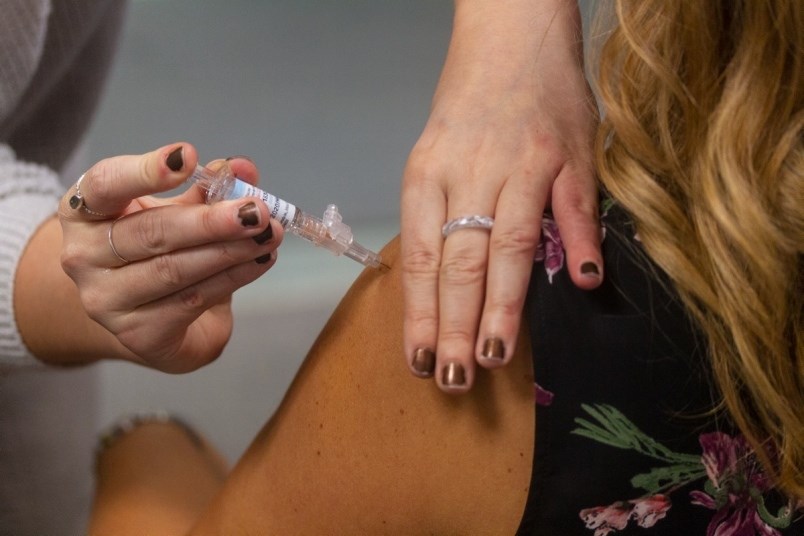The introduction of a vaccine passport Sept. 13 has Tri-City businesses concerned about being gatekeepers for B.C.’s vaccine program.
The proof of vaccination document will be required do things like eat at a restaurant, see a movie in the theatre or take part in a fitness class.
Residents who want to take part in those activities will need at least one vaccine dose by Sept. 13 and two by Oct. 24.
But to ensure the program works, Tri-City business owners will likely be required to check for vaccine status of their customers, something many are worried about.
“I don’t think it’s my prerogative to tell people what to put or not put in their bodies,” said one Port Moody resident whose business is one of 37 across the Tri-Cities listed on a No Vax BC website for companies opposed to the proof of vaccine program.
(He didn't want his name or business mentioned in the Tri-City News due to concerns about pushback from people. However, the website lists names, addresses and phone numbers and is accessible to the public.)
Calling it a BC Health Pass, business owners who were willing to speak to the Tri-City News said they were unvaccinated themselves and didn’t want to have to vet their customers for vaccine status.
“My thing is really just pro-choice, it’s always been that way from the beginning,” said Catalin Capota, owner of Charged Install Services.
While his automotive business can be conducted safely — without a customer standing nearby — Capota says he’s upset with the way the B.C. and federal governments have handled COVID-19.
Capota opposes mandatory vaccines for some government workers, and vaccination passports for travel and other non-essential businesses, claiming they infringe on people’s liberties.
“It’s not a health issue anymore,” said Capota, noting that while he remains unvaccinated due to safety concerns about the COVID-19 shot, he’s not against vaccines generally and has received typical inoculations.
He believes the new government policies to promote vaccination are too much of an intrusion. “They are totally infringing upon my rights of free movement,” Capota said.
Personal freedom issues aside, many businesses are worried about whether they would need security to enforce the vaccine passport while others are concerned about having enough staff to deal with the issue.
"To clarify, we do not oppose the vaccine pass program," said said Tri-Cities Chamber of Commerce CEO Leslie Courchesne in an email to the Tri-City News.
“The vaccine pass program is yet another curveball that businesses must adapt to quickly. I think everyone is frustrated that we are yet again dealing with rising COVID-19 case numbers, but no one wants another shutdown.”
Courchesne said the chamber wants the program to go “as smoothly as possible,” but acknowledges many of their members are uncertain about this next step in the pandemic recovery program.
“Some of our chamber members as well as businesses throughout the province have raised concerns about the implementation of this new program, ranging from resourcing to security concerns, and even individual freedom.”
Courchesne said the chamber is waiting for more details about implementation and supports for businesses and will advise members as needed.
Businesses that will require proof of vaccination include:
- indoor ticketed sporting events
- indoor concerts
- indoor theatre/dance/symphony events
- restaurants (indoor and patio dining)
- night clubs
- casinos
- movie theatres
- fitness centres/gyms (excluding youth recreational sport)
- businesses offering indoor high-intensity group exercise activities
- organized indoor events (e.g., weddings, parties, conferences, meetings, workshops)
- discretionary organized indoor group recreational classes and activities
However, businesses declared essential, such as grocery stores, won’t require a proof of vaccine status.





